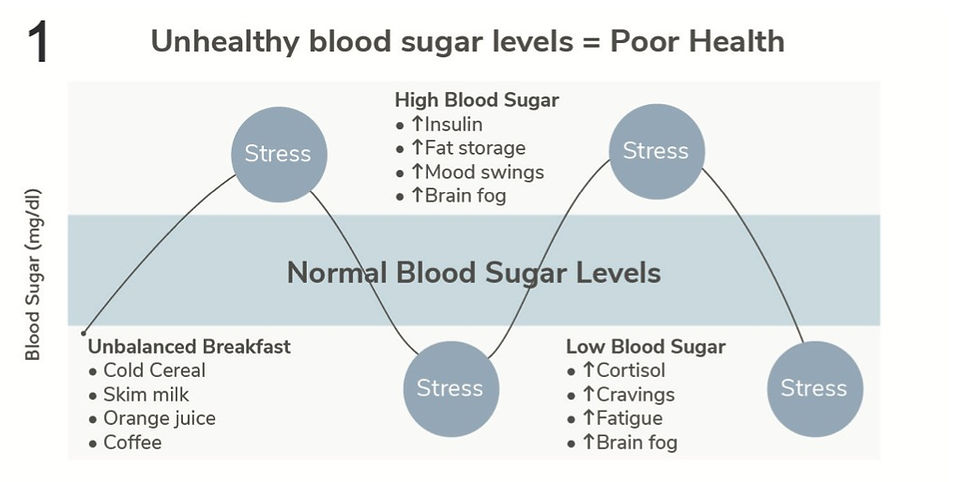Signs of Insulin Resistance
- Jun 15, 2022
- 3 min read
In my practice, 100% of my clients have some sort of dysglycemia. And, the majority are not told this by their Doctor. Most are only told when the condition has progressed to full blown diabetes. So, who should be reading this? EVERYONE!!! Just because your Doctor has not discussed this with you, you may be someone who is showing signs, take charge of your health and begin the reversal today!!!
Insulin resistance is an increasingly common problem many people are facing today. The Cleveland Clinic has stated as of December 2021, there are, which equates to about 1 in 3 adults. It is estimated that the number of people with diabetes will double during the next 25 years. The numbers will go from about 190 million to 325 million unless we do something about it.

Insulin resistance occurs if your body is unable to respond and use the insulin your body is producing. In a future post I will explain why our bodies produce insulin, its role in our body, and how to get insulin under control. But, for now I wanted to point out, while carbohydrates do raise your blood sugar the most in the short term, you need to be aware that:
all foods can drive an insulin response,
the insulin produced by your pancreas acts to hold your energy in storage, and
the more body fat you are carrying, the higher your insulin levels will be.
Therefore it is not just as simple as eating processed carbs → insulin → fat storage
But instead:
Nutrient poor foods, which are not satiating → will create erratic blood sugar → which will increase your cravings for more sugar → which will increase the amount of calories you take in (energy) → which increases your storage of energy → which will cause you to hold weight, in the form of fat → this will increase the amount of insulin you secrete
In order to mitigate this process, it is best to do the following:
Eat a diet that is nutrient dense → this will give you more vitamins and minerals that your body needs, and will increase your satiety hormones → this will decrease your cravings and appetite → which will decrease your demand for energy intake → you will in return see fat loss → and help to create healthy insulin levels
Insulin resistance can lead to prediabetes, diabetes, metabolic syndrome, Type 3 diabetes (a way of describing Alzheimer’s, which is caused by insulin resistance in the brain). Insulin resistance is also associated with heart disease, non-alcoholic fatty liver disease (NAFLD), infertility, endometriosis, PCOS, obesity, cancer, and autoimmune disease.
The following are signs of insulin resistance:
Cravings for sweets that don’t actually get relieved by eating sweets
Cravings for sweets after meals
Large appetite
Feeling tired after meals
Getting “hangry”
Acne, skin tags and/or skin pigmentation changes
Weight gain around the middle
Trouble losing weight (typically around the middle)
Sleep apnea
Frequent thirst and an urge to urinate
Hormone issues such PCOS, infertility, endometriosis
Males often may have low testosterone
Females will often have estrogen and/or testosterone dominance
High blood pressure
High cholesterol, High LDL and high Triglycerides not all have to be high
High fasting glucose - optimal is below 90
High fasting insulin - optimal is below 10
The good news is it is possible to reverse and prevent issues with regulating your insulin and get your body back under control naturally through dietary and lifestyle changes. In future posts I will explain the role of insulin in your body, what insulin resistance is, ways to stabilize your blood sugar, and supplements that may be helpful.
#functionalnutrition #lifeyourbestlife #insulinresistance #dietarychanges #hormones #metabolichealth #hormonehealth #estrogendominance #lowtestosterone #cravings #highbloodpressure




Comments